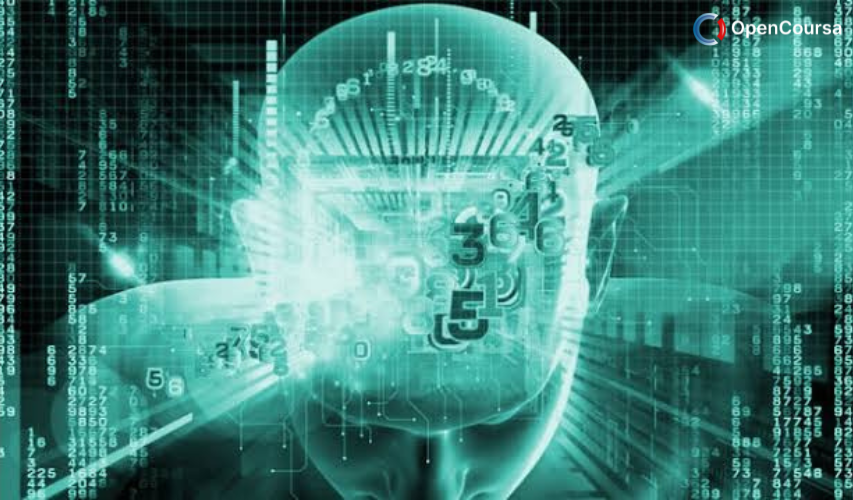Home » Course Layouts » Free Course Layout Udemy
ntroduction to Soft Computing. Instructor: Prof. DebasisSamanta, Department of Computer Science and Engineering, IIT Kharagpur.
0
1
English
English [CC]
- Learn basic syntax that can apply to any language.
- Learn what is a programming language and the basic concepts for beginners.
- Understand what is Javascript in it's truest form.
- Know the basic syntax of Javascript.
- Know some hidden quirks in Javascript.
Description
Soft computing is an emerging approach to computing which parallels the remarkable ability of the human mind to reason and learn in an environment of uncertainty and imprecision. Soft computing is based on some biological inspired methodologies such as genetics, evolution, ante's behaviors, particles swarming, human nervous systems, etc. Now, soft computing is the only solution when we don't have any mathematical modeling of problem solving (i.e., algorithm), need a solution to a complex problem in real time, easy to adapt with changed scenarios and can be implemented with parallel computing. It has enormous applications in many application areas such as medical diagnosis, computer vision, hand-written character recognition, pattern recognition, machine intelligence, weather forecasting, network optimization, VLSI design,
Course content
- Lecture 01 – Introduction Unlimited
- Lecture 02 – Introduction to Fuzzy Logic Unlimited
- Lecture 03 – Fuzzy Membership Functions and Defining Membership Functions Unlimited
- Lecture 04 – Fuzzy Operations Unlimited
- Lecture 05 – Fuzzy Relations Unlimited
- Lecture 06 – Fuzzy Relations (cont.), Fuzzy Propositions Unlimited
- Lecture 07 – Fuzzy Implications Unlimited
- Lecture 08 – Fuzzy Inferences Unlimited
- Lecture 09 – Defuzzification Techniques Unlimited
- Lecture 10 – Defuzzification Techniques (cont.) Unlimited
- Lecture 11 – Fuzzy Logic Controller Unlimited
- Lecture 12 – Fuzzy Logic Controller (cont.) Unlimited
- Lecture 13 – Fuzzy Logic Controller (cont.) Unlimited
- Lecture 14 – Concept of Genetic Algorithm Unlimited
- Lecture 15 – Concept of Genetic Algorithm (cont.), GA Strategies Unlimited
- Lecture 16 – GA Operator: Encoding Schemes Unlimited
- Lecture 17 – GA Operator: Encoding Schemes (cont.) Unlimited
- Lecture 18 – GA Operator: Selection Unlimited
- Lecture 19 – GA Operator: Selection (cont.) Unlimited
- Lecture 20 – GA Operator: Crossover Techniques Unlimited
- Lecture 21 – GA Operator: Crossover Techniques (cont.) Unlimited
- Lecture 22 – GA Operator: Crossover Techniques (cont.) Unlimited
- Lecture 23 – GA Operator: Mutation and Others Unlimited
- Lecture 24 – Multi-objective Optimization Problem Solving Unlimited
- Lecture 25 – Multi-objective Optimization Problem Solving (cont.) Unlimited
- Lecture 26 – Concept of Domination Unlimited
- Lecture 27 – Non-pareto based Approaches to Solve MOOPs Unlimited
- Lecture 28 – Non-pareto based Approaches to Solve MOOPs (cont.) Unlimited
- Lecture 29 – Pareto based Approaches to Solve MOOPs Unlimited
- Lecture 30 – Pareto based Approaches to Solve MOOPs (cont.) Unlimited
- Lecture 31 – Pareto based Approaches to Solve MOOPs (cont.) Unlimited
- Lecture 32 – Pareto based Approaches to Solve MOOPs (cont.) Unlimited
- Lecture 33 – Pareto based Approaches to Solve MOOPs (cont.) Unlimited
- Lecture 34 – Introduction to Artificial Neural Network Unlimited
- Lecture 35 – ANN Architectures Unlimited
- Lecture 36 – Training ANNs Unlimited
- Lecture 37 – Training ANNs (cont.) Unlimited
- Lecture 38 – Training ANNs (cont.) Unlimited
- Lecture 39 – Training ANNs (cont.) Unlimited
- Lecture 40 – Soft Computing Tools Unlimited
N.A
- 5 stars0
- 4 stars0
- 3 stars0
- 2 stars0
- 1 stars0
No Reviews found for this course.










